Benzyl methacrylate
Synonym(s):Benzyl α-methylacrylate;Benzyl 2-methylacrylate;Phenylmethyl 2-methyl-2-propenoate
- CAS NO.:2495-37-6
- Empirical Formula: C11H12O2
- Molecular Weight: 176.21
- MDL number: MFCD00053684
- EINECS: 219-674-4
- SAFETY DATA SHEET (SDS)
- Update Date: 2024-12-18 14:08:57
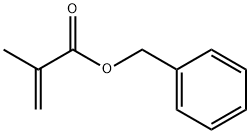
What is Benzyl methacrylate?
Description
The cyclic methacrylate monomer benzyl methacrylate (BzMA) was evaluated as an alternative to traditional methyl methacrylate (MMA) as a hard monomer in the application of an acrylate latex pressure-sensitive adhesive (PSA). BzMA is widely used in nanoimprinting lithography, paint applications, inkjet inks, transparent adhesives, orthodontic adhesive compositions, and stationary phases in liquid chromatography[1].
Chemical properties
Colorless oily liquid. Very slightly soluble in water, soluble in alcohol and oils. Soft, warm, herbaceous-rosy odor of moderate tenacity.
The Uses of Benzyl methacrylate
Benzyl methacrylate is an important raw material and intermediate used in organic synthesis, pharmaceuticals and agrochemicals.
Flammability and Explosibility
Not classified
Advantages
The Tg of the copolymer was elevated, while thermal stability was first increased and then decreased with the introduction of Benzyl methacrylate. Besides, the water resistance of the latex PSA was improved by the presence of BzMA, which was confirmed by water contact angle measurements. Furthermore, as the BzMA content increased, the gel content slightly decreased, while sol molecular weight (Mw, Mn) of the polymer increased. Finally, with respect to the adhesive properties of the PSA, it was observed that loop tack decreased, while shear strength increased with the incorporation of BzMA. 180° peel strength initially increased and then decreased with the addition of Benzyl methacrylate from 0 to 30 wt%, with a maximum value at 5 wt%.
References
[1] Cheng Fang , Xiaolong Zhu, Fuxiang Zhou . “The application research of benzyl methacrylate (BzMA) in acrylate latex pressure sensitive adhesives.” International Journal of Adhesion and Adhesives 107 (2021): Article 102861.
Properties of Benzyl methacrylate
| Melting point: | <25 °C |
| Boiling point: | 95-98 °C/4 mmHg (lit.) |
| Density | 1.04 g/mL at 25 °C (lit.) |
| vapor pressure | 3Pa at 20℃ |
| refractive index | n |
| Flash point: | 225 °F |
| storage temp. | 2-8°C(protect from light) |
| form | clear liquid |
| color | Colorless |
| Water Solubility | Insoluble in water. |
| Sensitive | Light Sensitive |
| BRN | 2045924 |
| Stability: | Stable. Flammable. Incompatible with free-radical initiators, oxidizing agents, reducing agents. Avoid heat. Light-sensitive. |
| CAS DataBase Reference | 2495-37-6(CAS DataBase Reference) |
| NIST Chemistry Reference | Benzyl methacrylate(2495-37-6) |
| EPA Substance Registry System | 2-Propenoic acid, 2-methyl-, phenylmethyl ester (2495-37-6) |
Safety information for Benzyl methacrylate
| Signal word | Warning |
| Pictogram(s) |
 Exclamation Mark Irritant GHS07 |
| GHS Hazard Statements |
H315:Skin corrosion/irritation H319:Serious eye damage/eye irritation H335:Specific target organ toxicity, single exposure;Respiratory tract irritation |
| Precautionary Statement Codes |
P261:Avoid breathing dust/fume/gas/mist/vapours/spray. P264:Wash hands thoroughly after handling. P264:Wash skin thouroughly after handling. P271:Use only outdoors or in a well-ventilated area. P280:Wear protective gloves/protective clothing/eye protection/face protection. P302+P352:IF ON SKIN: wash with plenty of soap and water. P305+P351+P338:IF IN EYES: Rinse cautiously with water for several minutes. Remove contact lenses, if present and easy to do. Continuerinsing. |
Computed Descriptors for Benzyl methacrylate
New Products
(S)-3-Aminobutanenitrile hydrochloride 4-Methylphenylacetic acid N-Boc-D-alaninol N-BOC-D/L-ALANINOL Tert-butyl bis(2-chloroethyl)carbamate 3-Morpholino-1-(4-nitrophenyl)-5,6-dihydropyridin- 2(1H)-one Furan-2,5-Dicarboxylic Acid Tropic acid 1-Bromo-3,5-Di-Tert-Butylbenzene S-2-CHLORO PROPIONIC ACID ETHYL ISOCYANOACETATE 2-Bromo-1,3-Bis(Dimethylamino)Trimethinium Hexafluorophosphate 4-IODO BENZOIC ACID 3-NITRO-2-METHYL ANILINE 1-(2,4-DICHLOROPHENYL) ETHANAMINE (2-Hydroxyphenyl)acetonitrile 4-Bromopyrazole 2-(Cyanocyclohexyl)acetic acid 4-methoxy-3,5-dinitropyridine 1-(4-(aminomethyl)benzyl)urea hydrochloride 2-aminopropyl benzoate hydrochloride diethyl 2-(2-((tertbutoxycarbonyl)amino) ethyl)malonate tert-butyl 4- (ureidomethyl)benzylcarbamate Ethyl-2-chloro((4-methoxyphenyl)hydrazono)acetateRelated products of tetrahydrofuran
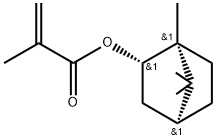
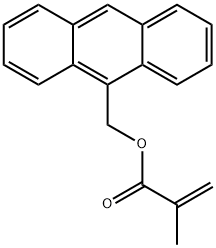

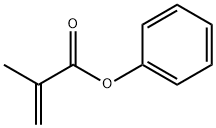
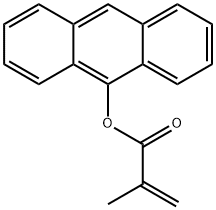

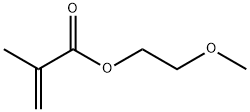

You may like
-
 Benzyl Methacrylate (stabilized with MEHQ) CAS 2495-37-6View Details
Benzyl Methacrylate (stabilized with MEHQ) CAS 2495-37-6View Details
2495-37-6 -
 Benzyl methacrylate, stabilized with ≈50 to 100ppm 4-methoxyphenol CAS 2495-37-6View Details
Benzyl methacrylate, stabilized with ≈50 to 100ppm 4-methoxyphenol CAS 2495-37-6View Details
2495-37-6 -
 Benzyl methacrylate CAS 2495-37-6View Details
Benzyl methacrylate CAS 2495-37-6View Details
2495-37-6 -
 Benzyl methacrylate CAS 2495-37-6View Details
Benzyl methacrylate CAS 2495-37-6View Details
2495-37-6 -
 1975-50-4 98%View Details
1975-50-4 98%View Details
1975-50-4 -
 2-HYDROXY BENZYL ALCOHOL 98%View Details
2-HYDROXY BENZYL ALCOHOL 98%View Details
90-01-7 -
 14714-50-2 (2-Hydroxyphenyl)acetonitrile 98+View Details
14714-50-2 (2-Hydroxyphenyl)acetonitrile 98+View Details
14714-50-2 -
 118753-70-1 98+View Details
118753-70-1 98+View Details
118753-70-1